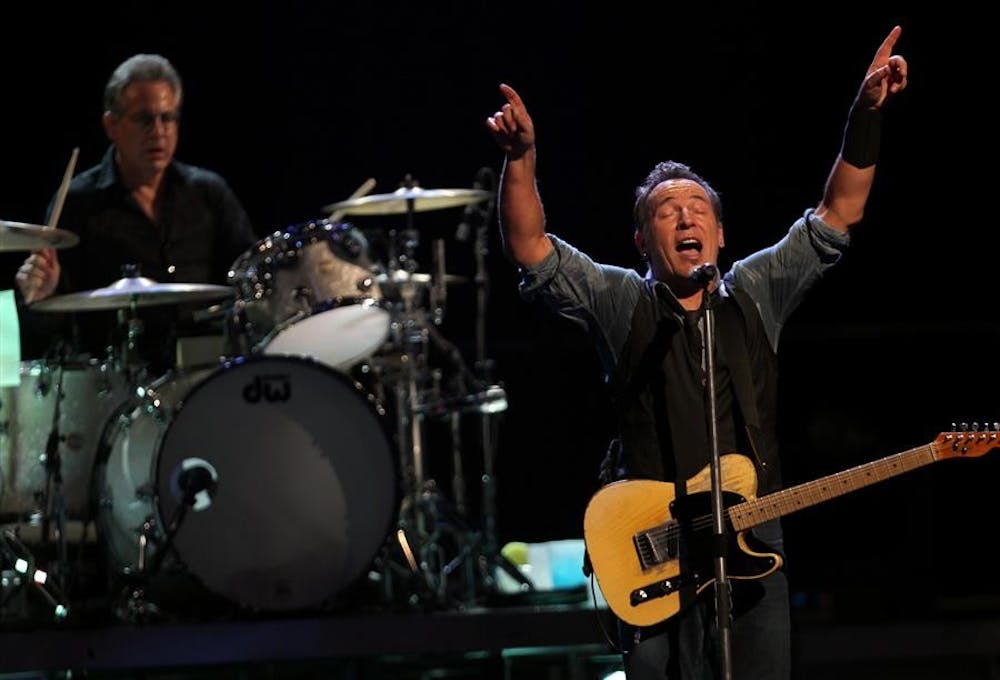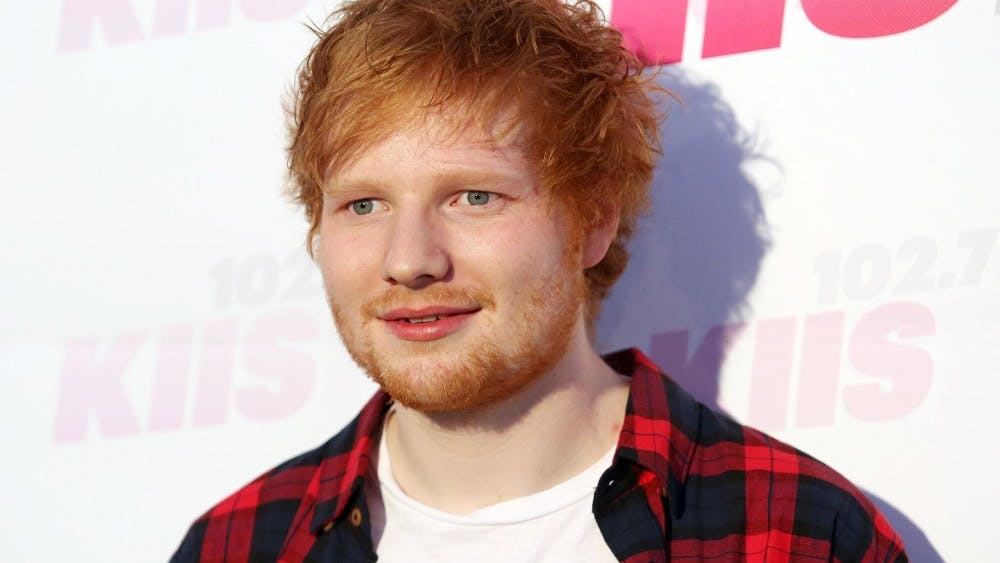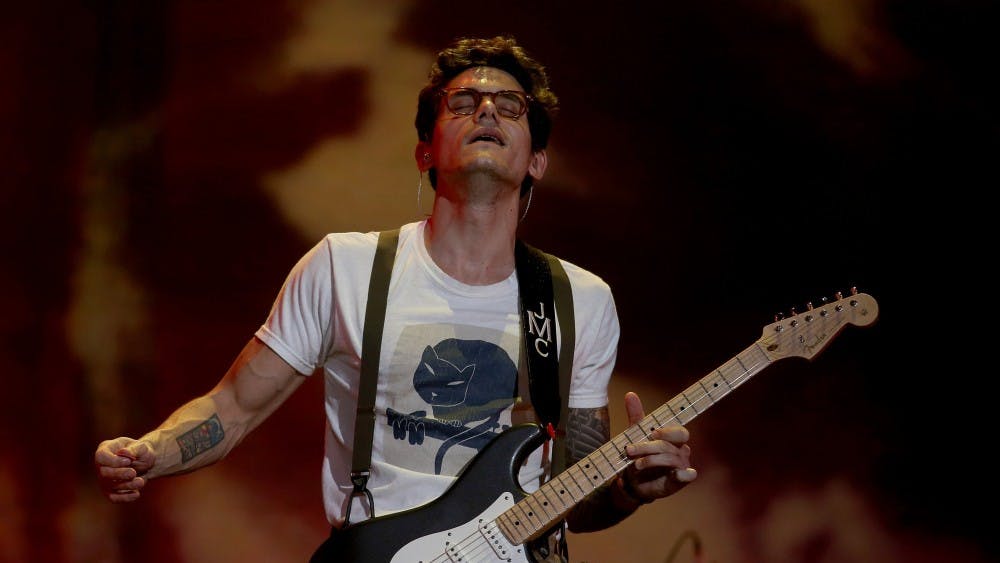“High Hopes,” Bruce Springsteen’s 18th studio album, is actually my first Springsteen album.
Admitting this is, I realize, a kind of blasphemy for any of us who style ourselves rock ’n’ roll listeners. Rock ’n’ roll without Springsteen is like literature without the modernists.
“High Hopes” is, luckily, a good place to start making up for lost time. “Wrecking Ball,” the artist’s 2012 studio album, was angry and reactionary — the response of an artist who had spent the majority of his career celebrating an ideal America and finds that it no longer exists.
Despite its positive critical reception, there is something unsettling in the transition from blazingly patriotic “Born in the USA” to bitter irony in “American Land.”
Springsteen probably felt uncomfortable with his new outlook, which is why “High Hopes” is characterized by retrogression, both in perspective and in sound.
Most of the songs on the album are covers, reboots or songs that the artist has performed before but has not found a suitable album to include them. Essentially, it’s an album of misfit tunes.
That being said, most of the songs on “High Hopes” are excellent. Springsteen’s supreme gift — the ability to turn Heartland, Americana rock into a timeless tradition and not just a relic on a jukebox — makes almost every song sound fit for a stadium.
“High Hopes,” for instance, takes a cue from Jersey Shore rock and adds a spunky brass section and keyboard to an already-lively chorus.
The album nevertheless offers plenty of simpler messages to go along with its commentary.
“Just like Fire Would” carries the theme of rough and tough — those good ole’ boys — with a series of images borrowed directly from the 1980s.
Springsteen treats love and moral values the same way to far less effect on the album’s weakest songs, “Heaven’s Wall,” “Frankie Fell in Love,” and “This is Your Sword,” which never become more than charming, and which often fall into the category of self-parody.
With his strong, gravelly voice, Springsteen is especially susceptible to passion, but when he trades his brass for a fiddle and groans lyrics like: “This is your sword, this is your shield/ This is the power of love revealed,” you wonder if the effort wouldn’t be better put toward karaoke or a rendition of Auld Lang Syne.
Of course, we forgive the rock god for these mishaps. At its worst, “High Hopes” borders camp, but at its best, even the re-releases sound revolutionary.
It would be a mistake to attempt and find a theme that ties all the songs of “High Hopes” together when its only theme is the artist’s history.
However, you can marvel at the balance between the grandiose “Tom Joad” and the album’s incredible “American Skin (41 Shots)” from 2000. Springsteen wrote the song
in response to the police shooting of the unarmed immigrant from Guinea, Amadou Diallo, but began performing it again on his “Wrecking Ball” tour last year in honor of Trayvon Martin, whose shooting in 2012 sparked international controversy.
More intimate than even the artist’s devastating “Nebraska” from 1982, “American Skin” is as powerful and haunting as they come. It’s a rock ballad steeped in remorse so profound that Springsteen doesn’t sing his lyrics, he laments them and lets a chorus of mourners whisper the “41 Shots” that riddled Diallo’s body: “No secret my friend/ You can get killed just for living in your American skin.”
With songs as timeless as this, Springsteen doesn’t need anything new.
High Hopes

Get stories like this in your inbox
Subscribe





